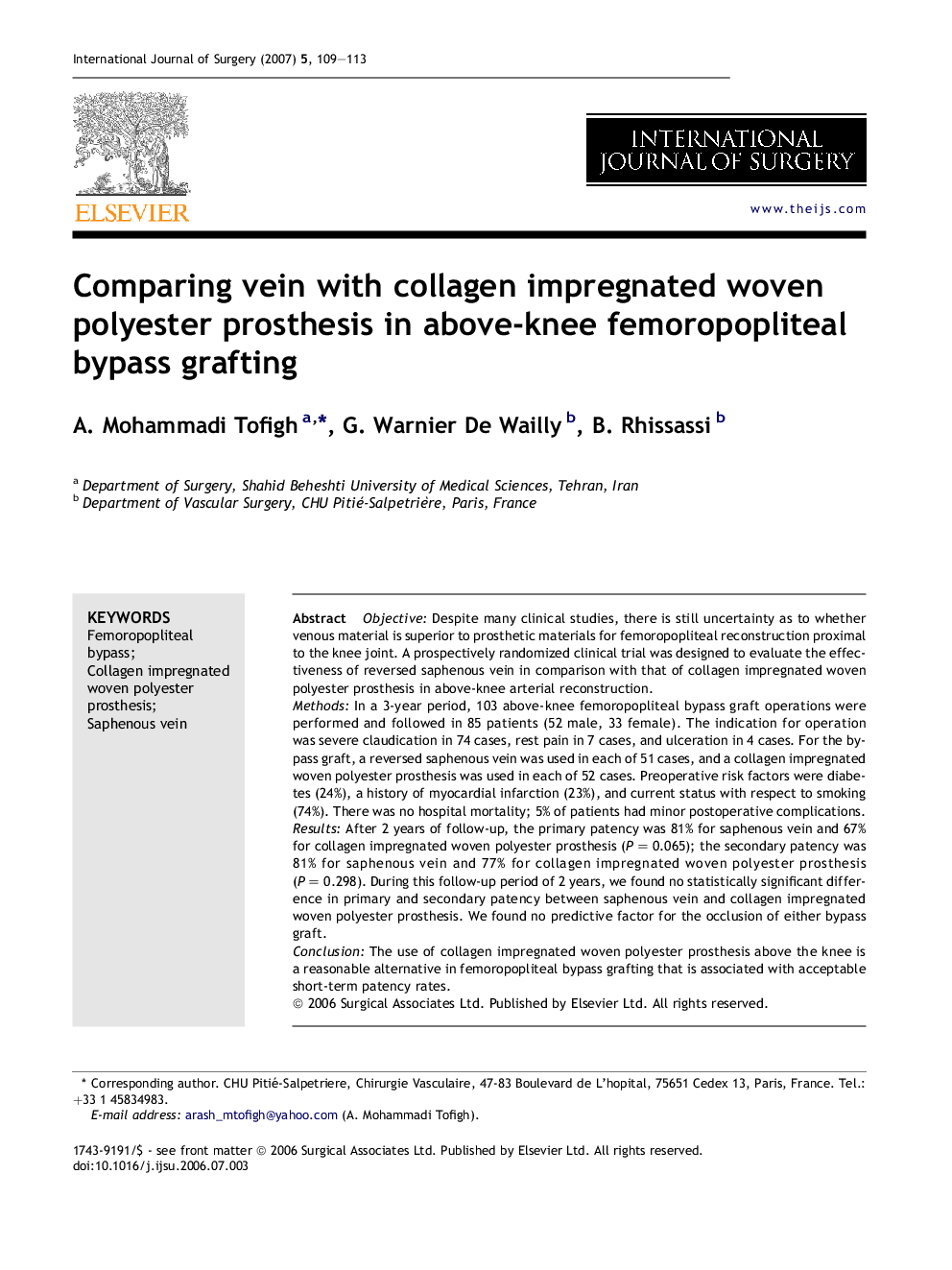| Article ID | Journal | Published Year | Pages | File Type |
|---|---|---|---|---|
| 4288090 | International Journal of Surgery | 2007 | 5 Pages |
ObjectiveDespite many clinical studies, there is still uncertainty as to whether venous material is superior to prosthetic materials for femoropopliteal reconstruction proximal to the knee joint. A prospectively randomized clinical trial was designed to evaluate the effectiveness of reversed saphenous vein in comparison with that of collagen impregnated woven polyester prosthesis in above-knee arterial reconstruction.MethodsIn a 3-year period, 103 above-knee femoropopliteal bypass graft operations were performed and followed in 85 patients (52 male, 33 female). The indication for operation was severe claudication in 74 cases, rest pain in 7 cases, and ulceration in 4 cases. For the bypass graft, a reversed saphenous vein was used in each of 51 cases, and a collagen impregnated woven polyester prosthesis was used in each of 52 cases. Preoperative risk factors were diabetes (24%), a history of myocardial infarction (23%), and current status with respect to smoking (74%). There was no hospital mortality; 5% of patients had minor postoperative complications.ResultsAfter 2 years of follow-up, the primary patency was 81% for saphenous vein and 67% for collagen impregnated woven polyester prosthesis (P = 0.065); the secondary patency was 81% for saphenous vein and 77% for collagen impregnated woven polyester prosthesis (P = 0.298). During this follow-up period of 2 years, we found no statistically significant difference in primary and secondary patency between saphenous vein and collagen impregnated woven polyester prosthesis. We found no predictive factor for the occlusion of either bypass graft.ConclusionThe use of collagen impregnated woven polyester prosthesis above the knee is a reasonable alternative in femoropopliteal bypass grafting that is associated with acceptable short-term patency rates.
